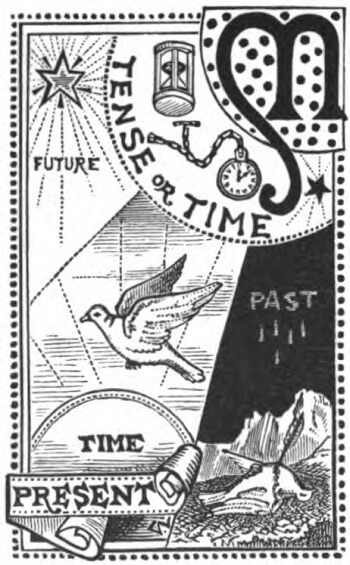 Grammar-Land
Grammar-Land
Grammar-Land
Grammar-Land


 Grammar-Land
Grammar-Land
Grammar-Land
Grammar-Land

Over the two weeks:
Activity - Week 1: Conjugate the Verbs
Conjugate the verbs per the Judge's request.
For example - to grab
THE JUDGE'S FOUR VERBS
Activity - Week 2 Part 1: Play the 'Conjugate That Verb' Game
Conjugate the given verbs from their current tense into their other two tenses.
For example - She runs (simple present tense) would be converted into the following:
Conjugate the following verbs into their other tenses:
Activity - Week 2 Part 2: Identify First, Second, or Third Person
Identify whether each of the sentences is written in first (I, me, my, we, our), second (you, your), or third person (he, she, it, they, them, their, his, hers, theirs).